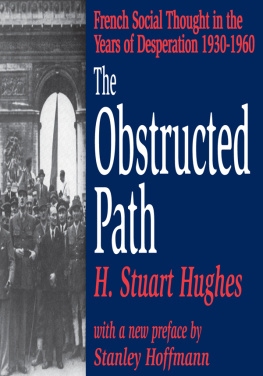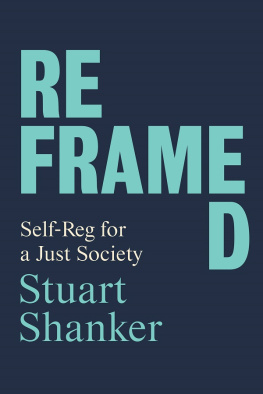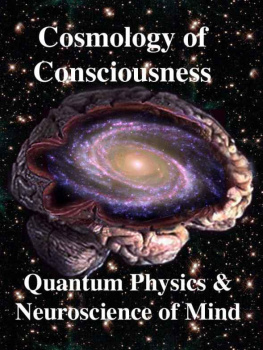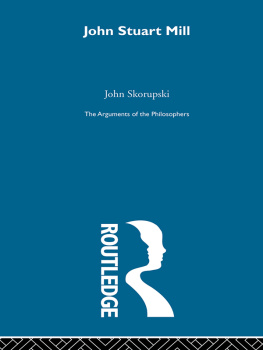Originally published in 1958 by Alfred A. Knopf, Inc. and Random House, Inc.
Published 2002 by Transaction Publishers
Published 2017 by Routledge
2 Park Square, Milton Park, Abingdon, Oxon OX14 4RN
711 Third Avenue, New York, NY 10017, USA
Routledge is an imprint of the Taylor & Francis Group, an informa business
New material this edition copyright 2002 by Taylor & Francis.
All rights reserved. No part of this book may be reprinted or reproduced or utilised in any form or by any electronic, mechanical, or other means, now known or hereafter invented, including photocopying and recording, or in any information storage or retrieval system, without permission in writing from the publishers.
Notice:
Product or corporate names may be trademarks or registered trademarks, and are used only for identification and explanation without intent to infringe.
Library of Congress Catalog Number: 2001057491
Library of Congress Cataloging-in-Publication Data
Hughes, H. Stuart (Henry Stuart), 1916
Conscioueness and society/H. Stuart Hughes; with a new introduction
by Stanley Hoffmann.
p. cm.
Originally published: New York: Knopf, 1958.
Includes bibliographical references and index.
ISBN 0-7658-0918-4 (paper: alk. paper)
1. Social sciencePhilosophy. 2. EuropeIntellectual life20th
century. I. Title.
H51 .H8 2002
301.09dc21
2001057491
ISBN 13: 978-0-7658-0918-6 (pbk)
CONSCIOUSNESS AND SOCIETY was first published forty-two years ago. It was greeted with respect and admiration: respect for the author's ambition to study the "generation of the 1890s"the very diverse intellectuals who were, in different ways, reacting against the preponderance of positivism in the discourse of the social sciences; and admiration for the subtlety, elegance, serenity, and mastery of analyses that covered writings in history, sociology, psychology, political thought, and literature. The presentation of the book on the jacket of the first edition stated that it was "the first work of its kind in any language." It appears to have also been the last.
To be sure, there have been a few equally distinguished works of intellectual history, such as Raymond Aron's Main Currents Sociological Thought. But nobody since H. Stuart Hughes has revisited with as much concentrated power and so broad a scope this particular generation, and its production of ideas that have become the paradigms of twentieth-century thought. Moreover, the prestige of intellectual history seems to have faded. There is a paradox here. In the huge field of historical writings, traditional political, economic, and social history, once dominant, appear to have been supplanted by cultural history. Yet, it is a cultural history more interested in practices and fashions, or in revealing more or less disguised manifestations of power and prejudice, than in studying ideas and intellectual debates. I am not sure that we have gained more than we have lost, and, as a non-historian, I find it hard to understand why bringing to light aspects of history that have been ignored requires relegating other, important aspects to darknessuntil I remember that the same thing happens in other fields of inquiry.
Reading Consciousness and Society again after more than forty years entails a triply fascinating voyage of rediscovery. First, it is a wonderful shock to immerse oneself in a work that deals with a welter of complex thoughts and theories, and with a sometimes bewildering array of connections among them, and yet is written in a prose so deceptively straightforward, crystalline and accessible. In the perennial debates over the necessity of jargon, Consciousness and Society is the decisive proof that jargon is a bar, not a help, to understanding.
Secondly, the issues that worriedindeed, sometimes tormentedthe writers Hughes discussed are still very much with us. Can we really recapture the past, or isn't the best kind of history that which reexamines past events in the light of new questions suggested by the present? Is the separation of facts and values tenable, and is it even desirable? Can rationality as a concept and as an ideal accommodate the kind of intuition Bergson celebrated, and the dark discoveries of Freud that so deeply upset a society that had provided him with his evidence? What should be the relationship between science and faith, and between scientific detachment and political action? Is there a meaning of history that historians or philosophers can discern, or is history the haphazard product of human contingency and spontaneity? How can the reaction against positivism avoid the very excess of irrationalism that positivism itself had not been able to avert once it fell prey to social Darwinism, "heredity" and "environment," and ended in what Hughes calls "a kind of scientific fatalism?" The contest between the complacent historical optimism of "scientism" that positivism embodied, and the sense of tragedy, of irreconcilable conflicts, of political and personal degradation that so many of Hughes' subjects experienced, is as acute today as it was hundred years ago.
Thirdly, it is difficult not to be struck by the contrast between the exemplary rigor of the book's early chapters, in which Hughes defines the field, the essential figures, and the central problems of his study (man's purpose, and "how the human mind can arrive at knowledge of society at all"), and the learned excursions that make up the bulk of the book. Another writer dealing with the same period would of course also have lingered on Freud, on Weber, perhaps on Sorel. But would he or she have been as fascinated by Croce, or as unexcited by Durkheim? Or as inclined to rank the importance of the subjects of the study? Above all, would someone else have disposed quite so quickly of a revolutionary thinker such as Nietzsche, whose mark can be seen on most of the writers covered in the book? Would the fin-de-sicle attempts at rejuvenating Marxism (including that of Jaurs, whom Hughes dismisses as merely verbose) receive as little attention, and would the novelists selected by HughesAlain-Fournier, Gide, Mann, Hesse, Proustfigure in such a study at all? Indeed, one of the many charms of Consciousness and Society is the portrait of Hughes' mind that it gives us; the mixture of acute professionalism in the dissection of other minds, and of dilettantism in the original sense of the wordfocusing on what gave the author aesthetic or philosophical pleasure rather than dutifully covering all the stages of a set curriculum. Thanks to the catholicity of Hughes' interests and to the breadth of his readings, the reader gets regularly "taken...far afield from the central concerns of the present volume" on side expeditions that widen his or her horizons.
Hughes describes the social thinkers of the early twentieth century as walking "on the edge of a razor." On one side were the past errors of positivism, on the other "the future errors of unreason and emotional thinking." On that edge "there remained only the narrow path of faith in reason." This describes perfectly Hughes' own stance. His other books, on twentieth-century French and Italian thought, showed his sympathy for writers who sometimes succeeded in remaining on, and sometimes fell off, the edge. A foe of ideologies of murder, aware of the fragility of reason, he remained throughout his life a voice of enlightened liberalism, free of illusions as well as of despair.













